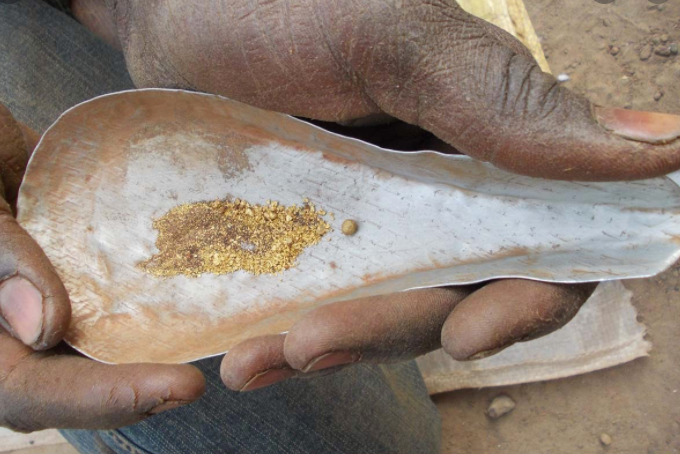Borno youths seek fortune in Mali’s goldfields
He works on the goldfields as an artisanal miner or in collaboration with agents of companies.

Mail’s Goldfields
The skyrocketing gold prices as well as the search for money and a better life have been some of the pull factors for some youths in Borno State to travel to the goldfields of Mali, which are said to be controlled by armed rebels.
The supply chain of the mineral involves middlemen who are said to underpay the miners and in turn sell the precious stone to reputable buyers at a much higher rate.
- How young Nigerians can become business leaders — Stanbic IBTC CEO
- The search for food security needs a hands-on and coherent approach
Modu Umar, in his late 30s, from Maiduguri, Borno said he, alongside friends, travel to the West African country by road to work in the informal minefields located on the borders with Algeria and Niger.
He works on the goldfields as an artisanal miner or in collaboration with agents of companies.
“Sometimes you have to dig the ground deep before you get gold and you can decide to work alone or with others,” he told Kanem Trust.
“There are middlemen who serve as agents of bigger processing companies who work with local miners on agreed sharing formulas.
“The middlemen provide mining equipment to the miners and they take half of the gold obtained while the remaining will be sold and part of the money will be used in servicing the equipment.”
He said some of the middlemen offered food or daily allowances to the local miners working with them but these would be deducted from the shares of the miners.
“I worked with a middleman who gave us mining machines and after three days of mining, we hit a jackpot. He collected the gold and disappeared before sharing,” he said.
Umar, who said he was in Maiduguri for a family engagement, added that he hoped to return to goldfields in few days.
“We travel by road through Kano and Katsina States to the Niger Republic before we arrived in Kidal, Mali,” he said.
According to Umar, the minefields located far away from human settlements were controlled by armed men who impose taxes on the miners.
He said: “They provide security and control the area and are being paid for that. They also sell food and other essential commodities to people living there.
“They have courts that dispense justice and issue verdict. Those found guilty of theft are being punished depending on the value of the stolen item. They kill people they perceive as traitors.”
When asked whether or not the armed men had connections to the insurgents in parts of Niger Republic and Nigeria by virtue of some of their similarities, he said, “it is not impossible for the armed men who are opposed to the constituted authorities in that country to establish ties with insurgents in neighbouring countries, but I am not privy to that.”
